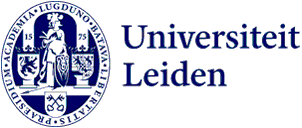
A future based on Wellbeing, Inclusion and Sustainability, rather than economic growth
How can society let go of its obsession with economic growth and focus on goals as wellbeing, inclusion and sustainability? This is one of the core questions which a new 3 million euro European project will tackle the upcoming four years. Leiden University researcher Rutger Hoekstra is project coordinator of WISE Horizons. ‘We know that a society focused on economic growth is untenable, but what does a “post-growth society” look like and how can we achieve it?’
What will our lives, and the lives of our children and grandchildren, look like in 2050 and beyond? And what metrics and policies would be needed? WISE Horizons aims to accelerate the transition to a new economic paradigm in which Wellbeing, Inclusion and Sustainability (WISE) are prioritised. For Hoekstra, who has been working on this topic since 2007, this is a dream come true: ‘To have eight leading universities and organizations work on this important question, gives us an opportunity to accelerate progress towards inclusive and sustainable wellbeing.’
Shaping a post-growth society
This new project will create a state-of-the-art framework with WISE indicators and models to help shape a post-growth society. The project will link to European policy strategies such as the net-zero targets, the circular economy, Sustainable Developments Goals and productivity and sustainable competitiveness. However, the project will also provide a broader global perspective by including WISE Horizons experts on Chinese and African sustainability policies and engaging global stakeholders throughout the process.
World Inequality Lab
Since many policies impact demographic groups very differently, special attention will be paid to inequalities. Lucas Chancel, who is co-director at World Inequality Lab together with Thomas Piketty, will lead this work. Chancel: ‘Over the past decades, we have significantly expanded our understanding of income and wealth inequality. In this project we hope to expand our knowledge of inequalities in wellbeing, health, education, time use and CO2 emissions and how these might develop in the future.’
WISE Database and Models that go ‘Beyond GDP’
The project will build on the WISE Database developed at Centre of Environmental Sciences (CML) of Leiden University. The database is a repository of indexes and indicators for wellbeing, inclusion and sustainability. These metrics are sometimes referred to as ‘Beyond-GDP’ because they are better measures of societal progress than the current dominant economic indicator, Gross Domestic Product (GDP). The WISE database will provide up-to date information for policy makers and journalists but also provide historical time series starting in 1820.
Leiden University’s Role
The Centre of Environmental Sciences (CML) of Leiden University will be the overall coordinator of the project and will be developing the WISE Database of indexes indicators and will create a novel WISE accounting framework. In addition, historical analysis (since 1820) of trends in wellbeing, inclusion and sustainability will be analysed, as well as the visualization of more recent policy relevant dashboards of indicators and indexes. CML will also be producing future oriented models on how to achieve wellbeing-lifestyles within planetary boundaries as well as the role of the circular economy in achieving these futures.
To replace standard economic modelling, a variety of WISE policy models will be created by leading experts and institutes to explore potential growth policies. These will include topics such as productivity, planetary boundaries, sustainable lifestyles, economic and non-economic inequalities, the circular economy and the future of the welfare state. Dr. Lirong Liu and dr. Simon Mair, who have collaborated on prof. Tim Jackson post-growth work, will lead the work on some of these partial models. Dr. Kirsten Wiebe will develop holistic integrated model: ‘The potential futures that we will be able describe based on the quantitative models, will help politicians as well as media and citizens to better envision possible global sustainable development paths and their implications on well-being and inclusion.’
WISE Co-creation
All the policy models on the WISE Horizons project are co-created with stakeholders. Various stakeholders will be invited to take part in a number of co-creation labs/workshops. To facilitate these processes, the WISE Stakeholder Platform, a network of network, will be created. An ambitious communication strategy will facilitate a public debate away from the current economic paradigm and towards a new paradigm fit for the future.
‘We are excited to embark on this journey with partners from around the world to better understand the prospects and challenges of putting wellbeing at the centre of economic concern. We invite you – researchers, policy makers and citizens – to join our new Stakeholder Platform, to help co-create a future based on wellbeing, inclusion and sustainability,’ says Jonathan Barth, policy director at ZOE future-fit-economies.
Consortium Leadership
Coordinator: Rutger Hoekstra (Centre of Environmental Sciences (CML), Leiden University)
Steering Committee/Work Package Leaders: Lucas Chancel (Paris School of Economics), Jonathan Barth (ZOE Future-Fit Economies), Lirong Liu (Centre for the Understanding of Sustainable Prosperity, Surrey University), Simon Mair (York University), Kirsten Wiebe (SINTEF), Junming Zhu (Tsinghua University) and Jaap Arntzen (Centre for Applied Research).
Advisory Board
Arnold Tukker (Leiden University), Thomas Piketty (Paris School of Economics), Tim Jackson (Centre for Sustainable Prosperity), Sangwon Suh (BREN Business School), Amanda Janoo (WEAll), Rebecca Riley (ESCOE), Joris Tieleman (Our New Economy), Sanjiv Mahajan (ONS), Romina Boarini (OECD), Alessandra Alfieri (UNSD), Stephanie Onder (World Bank).
Acknowledgements
The Horizon Europe “WISE Horizons” Research & Innovation Action (GA 101095219) started on January 1st 2023 and has a budget of nearly 3 million euro.

